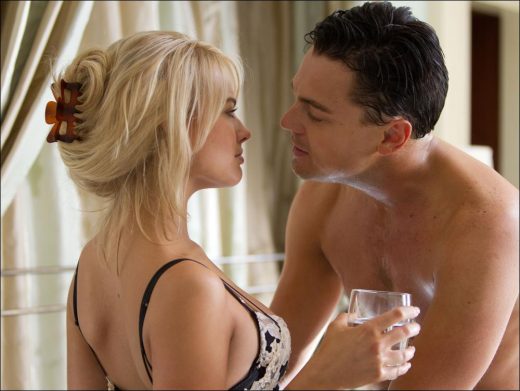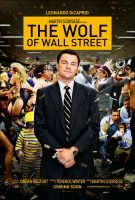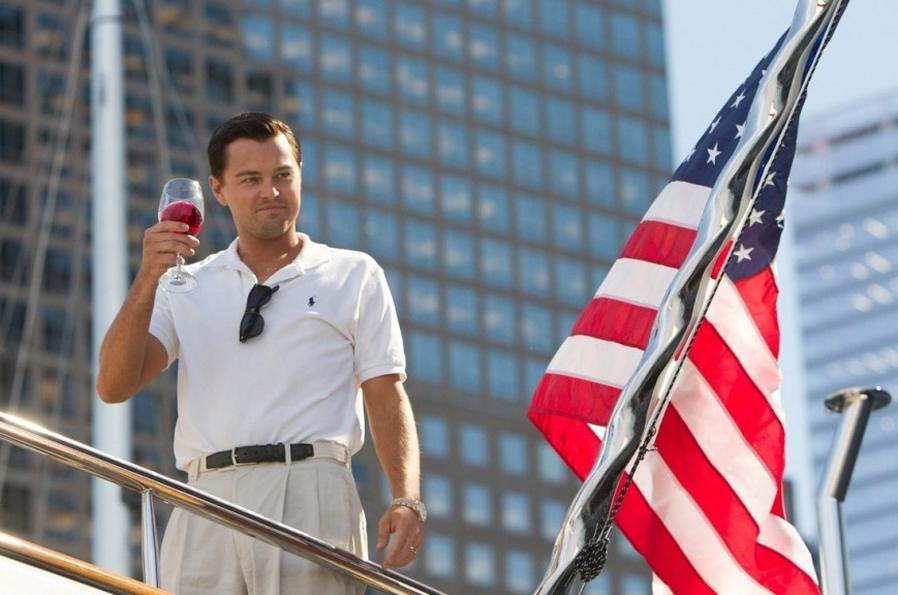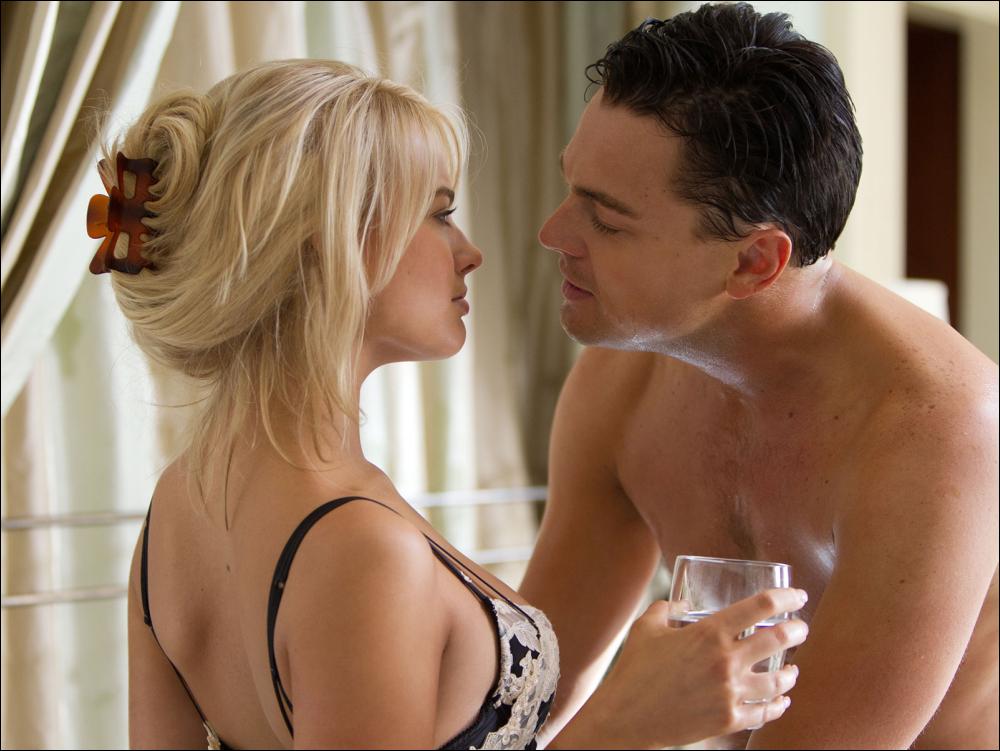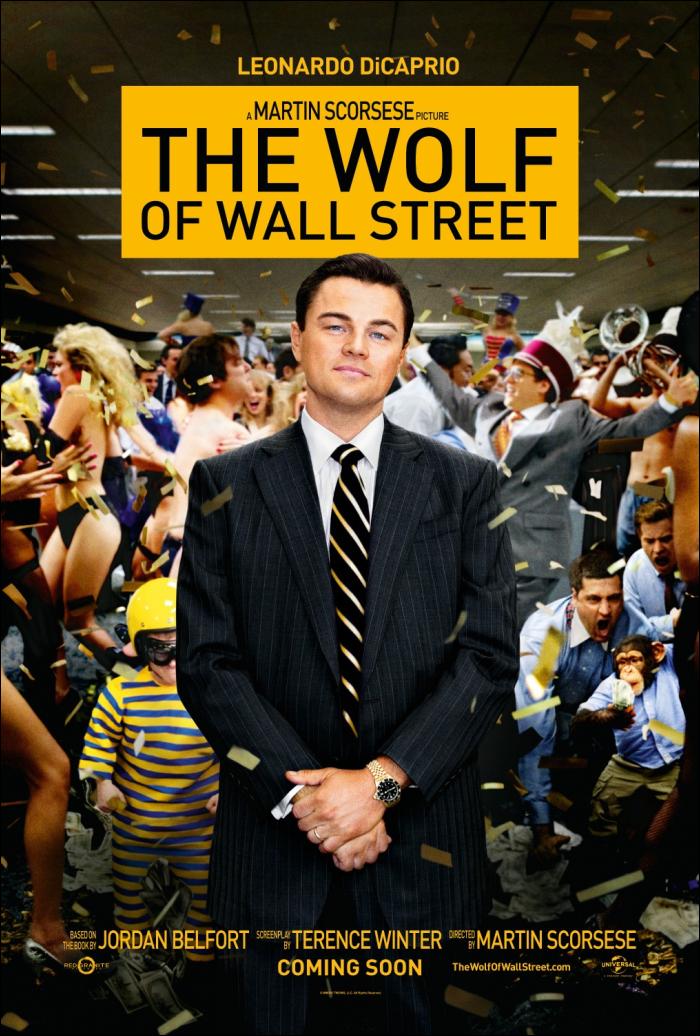The Wolf of Wall Street perhaps deserves comparison to Goodfellas and Casino as the illegitimate final child of an unofficial trilogy. Of course, the film does not follow the world of organized crime as we know it through Scorsese’s masterpieces. However, it is based on the ‘Reaganomics’ created by Ronald Reagan during his presidency, and since the 80s, Wall Street has been stealing hundreds of times more than even the largest mafia organization could steal from the pockets of Americans, and today’s populism of bankers and brokers who declare greed as their religion. No wonder they are depicted as gangsters of culture.
Over the last three decades of the rise of yuppie culture, a host of films have offered their own emotional takes on the consequences of growing unchecked greed in a capitalist financial system. Anger (Capitalism: A Love Story), contempt (Inside Job), moral didacticism (Wall Street) and even envy (Boiler Room)… Scorsese’s approach stands out above other examples in terms of the energy it displays because thematically He oscillates between pity and hatred. The Wolf of Wall Street is almost as passionate as Scorsese’s spiritually charged films The Last Temptation of Christ and Kundun, but unlike those films, it views its characters with hatred, not love.
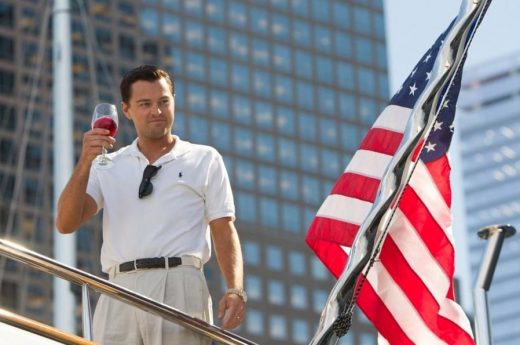
Interestingly, the more hedonistic, drug, alcohol, sex and most importantly money addicted millionaire broker Jordan Belfort (Leonardo DiCaprio) broke the fourth wall and bragged to us about his money, sexy wife and expensive house, the less I envied him.
I think this is because Scorsese and DiCaprio despise the character to the fullest. Belfort turns into a parasite wearing human clothes, a caricature with no defensible characteristics. Usually this kind of criticism implies depthless writing and inconsiderate direction, but this time a character like Belfort deserves that treatment. Humanizing this walking, breathing trash can would feel like a stretch, and Scorsese is aware of that fact.
Scorsese always found a way to humanize classic gangster characters, no matter how brutal they behaved. Because no matter how despicable they were, they were bound by a certain moral code of their own creation. For Jordan Belfort, morality and respect are foreign words. He’s just a greed machine who spends money, sleeps with prostitutes and snorts drugs like a sponge.
At the beginning of the film, Belfort, who loses his job as a broker during the minor financial crisis of 1987, finds a way to legally steal money from working-class citizens through ‘penny stocks’. As his swindling (sorry, brokering) business grows, Belfort recruits his degenerate friends, including Donnie Azoff (Jonah Hill), who marries his cousin just because he wants to sleep with her. Of course, this team wins enough money that they wonder what to do. From this point on, we join a three-hour-long, perfectly paced, often disturbingly funny, and constantly astonishing trip of self-indulgence.
Throughout this journey, Scorsese never wants us to feel compassion for Belfort, he wants us to laugh at him, not laugh with him. Even in a short scene that seems to humanize Belfort, we see that the story he tells about helping one of his workers stems from arrogance. Following his superficial rich man performance in The Great Gastby, Leonardo DiCaprio delivers a gutsy performance for an A-list star, tearing to shreds even the slightest dignity the character might have. All the performances are terrific, including Jonah Hill.
At first glance, The Wolf of Wall Street seems to fit into the satire genre as it conveys the Wall Street lifestyle in such an extreme way. However, in satire, a subject is generally exaggerated and the negative aspects of that subject are shown. Considering what we know about the world of Wall Street, even the film’s most absurd plot elements feel honest and direct. Unlike the dastardly Wall Street: Money Never Sleeps, The Wolf of Wall Street presents this world as it is, without making it cute.
The Wolf of Wall Street is a film that conveys the main character’s perversions without any filter and avoids forcing a message on the audience. That’s why there are those who argue that they approve of the lifestyle he shows. In my opinion, whatever your morals and priorities are, you will look at Jordan Belfort with those eyes. Even the long shot that closes the film creates a thesis in five seconds that two-hour films cannot establish on this subject. Worth watching…
The Wolf of Wall Street (2013)
Directed by: Martin Scorsese
Starring: Leonardo DiCaprio, Jonah Hill, Kyle Chandler, Jean Dujardin, Margot Robbie, Jon Favreau, Cristin Milioti, Matthew McConaughey
Screenplay by: Terence Winter
Production Design by: Bob Shaw
Cinematography by: Rodrigo Prieto
Film Editing by: Thelma Schoonmaker
Costume Design by: Sandy Powell
Set Decoration by: Ellen Christiansen
Music by: Howard Shore
MPAA Rating: R for sequences of strong sexual content, graphic nudity, drug use and language throughout, and for some violence.
Studio; Paramount Pictures
Release Date: November 15, 2013
Views: 344

